Covid: 'This is the biggest challenge we've ever seen'
- Published
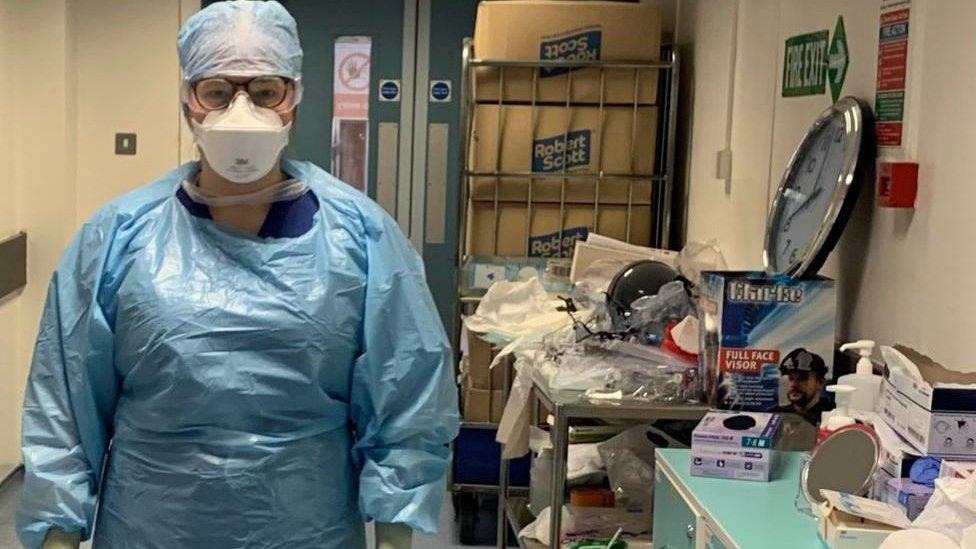
Intensive care nurse Kirstie Hill said she was expecting things to get worse
BBC News Online examines how East Midlands hospitals are coping with the current surge in Covid-19 cases.
Throughout autumn, repeated warnings suggested the NHS faced a difficult winter.
The pandemic's resurgence has compounded the usual extra pressure on health services during the colder months.
Now - despite two lockdowns in three months - those grim predictions are becoming reality, as hospital staff around the UK struggle to deal with rising Covid admissions.
So how bad are things in the region - and are they going to get worse?

How many Covid-19 patients are there at East Midlands hospitals?
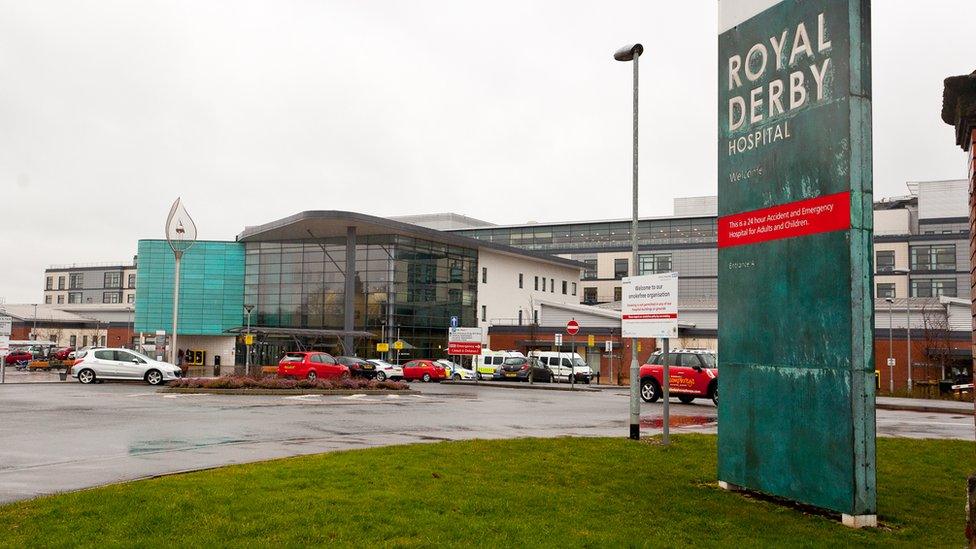
The Royal Derby Hospital's chief executive said he expected admissions to continue to rise
Hospital trusts across the East Midlands have reported rising admissions over the past few weeks.
As of 11 January, the Royal Derby Hospital was dealing with 349 Covid patients, more than double the number it was treating just before Christmas and higher than the peak of the first wave in spring last year.
Of these, 19 were in intensive care - not yet as high as the first wave peak of nearly 30.
Chesterfield Royal Hospital has also seen admissions climb since the festive period - with 158 Covid admissions, including 13 in intensive care.
The latest figures for Nottingham University Hospitals NHS Trust - which runs the Queen's Medical Centre and Nottingham City Hospital - show there were 377 patients with Covid on 12 January, of which 37 required mechanical ventilation.
At Sherwood Forest NHS Trust - which operates King's Mill Hospital, in Sutton-in-Ashfield, as well as hospitals in Newark and Mansfield - there were 178 Covid patients, 13 on ventilation.
And University Hospitals of Leicester - which runs Leicester Royal Infirmary, Leicester General Hospital and Glenfield Hospital - reported 365 Covid patients for 12 January, with 34 requiring ventilation.

How are the hospital's managers responding?
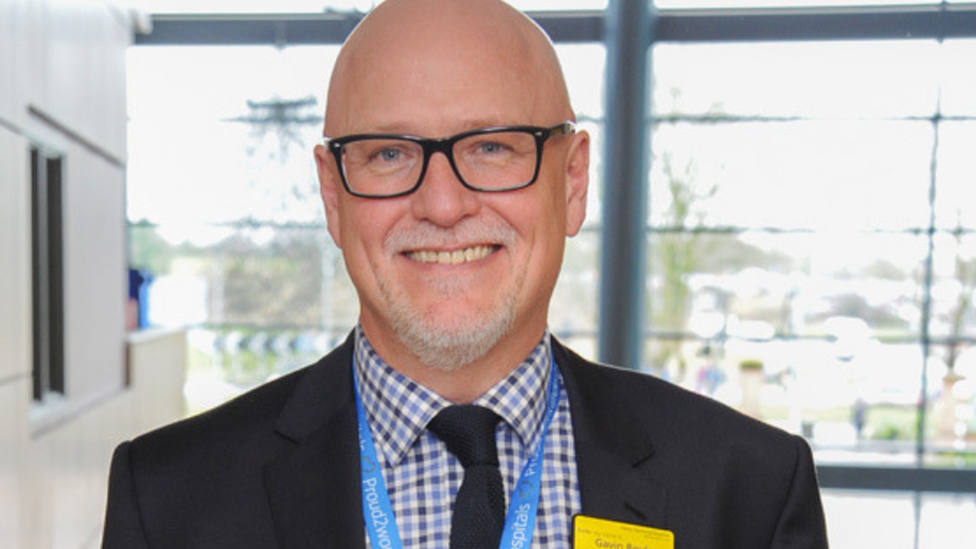
Gavin Boyle said the hospitals were facing the biggest challenge he had seen
"This is the biggest challenge I've ever seen," said Gavin Boyle, chief executive of the trust that runs the Royal Derby Hospital, who has worked for the NHS for 30 years.
"We've never seen anything like this.
"We've got the usual stuff you might expect in January - winter pressures - but obviously you've got large numbers of Covid patients as well."
Mr Boyle said he believes the peak of the wave may still be about a week away.
"Over the past couple of weeks we've seen numbers trickling up and actually had quite a big increase over Christmas, so I don't think we're there yet [at the peak]," he said.
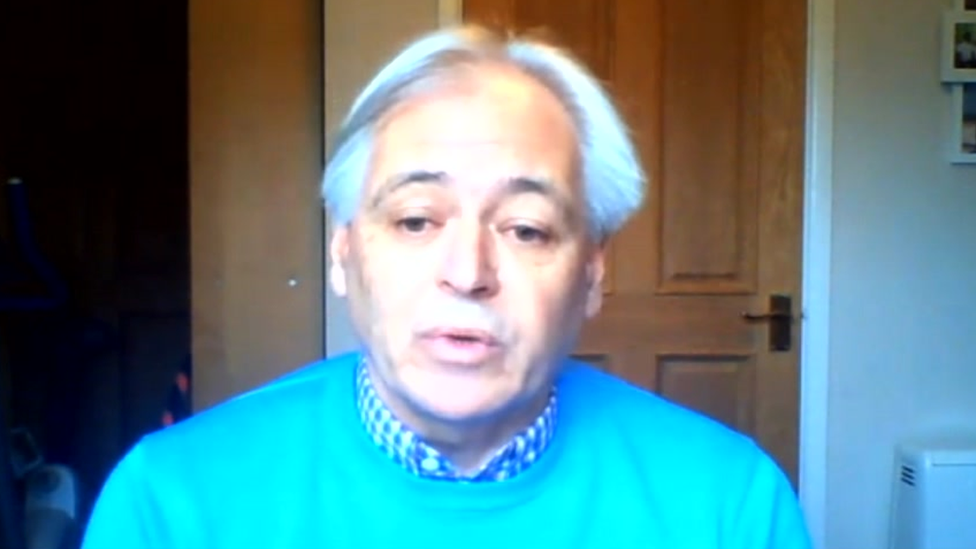
Dr Andy Haynes said he expected admissions to remain high for at least two more weeks
Dr Andy Haynes, executive lead for the Nottingham and Nottinghamshire Integrated Care System, said a quarter of hospital beds in the city and county were occupied by Covid patients, with numbers twice as high as in April.
"Admissions are still high and will remain high for at least two weeks," he said.
Dr Keith Girling, medical director at the Nottingham University Hospitals NHS Trust, said he hoped the current lockdown would make a difference.
"We've had a really busy period since October when we saw a big surge in numbers taking us to a higher level - 50% more - than we saw in April," he said.
"We saw a slight respite and, since Christmas, we've seen them climb again. We're seeing more cases come in each day.
"The lockdown's come at a really important time for us. We absolutely need people to comply with it, in order to stop the spread of this virus and [so] the pressure on our wards and beds doesn't continue to increase."

How are staff dealing with the pressures?
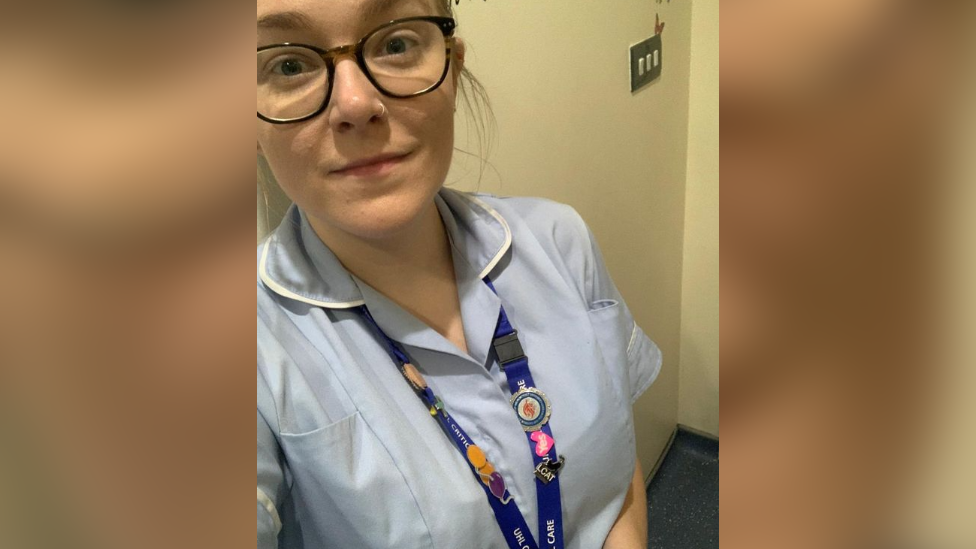
Kirstie Hill said her work with Covid patients was "heartbreaking"
Health workers across the region have done their best to cope with rising admissions.
Some have been given support for post-traumatic stress disorder (PTSD), caused by the strain and turmoil of combating the Covid-19 pandemic.
Dr Ian Gell, a non-executive director at the trust that runs Derby's hospitals, told the Local Democracy Reporting Service (LDRS): "Staff are feeling tired and jaded and that does need to be recognised.
"The pressures on the staff will be long-term and some staff will take a long, long time to recover from the things they've had to do and the things they've seen."
Staff sickness is also taking its toll.
Caroline Swan, a senior sister and manager of the intensive care unit at the Royal Derby, told the BBC in November: "My staff are very tired and stressed out.
"A lot of staff have to self-isolate at home - and that puts a lot of strain on staffing here."
The hospital introduced a "wobble room", set aside for front-line staff to help them escape - briefly - from the intense pressure and strain.
"It's a room where staff could just go and sit and cry if they needed to," said Kelly-Ann Gurney, an intensive-care nurse.
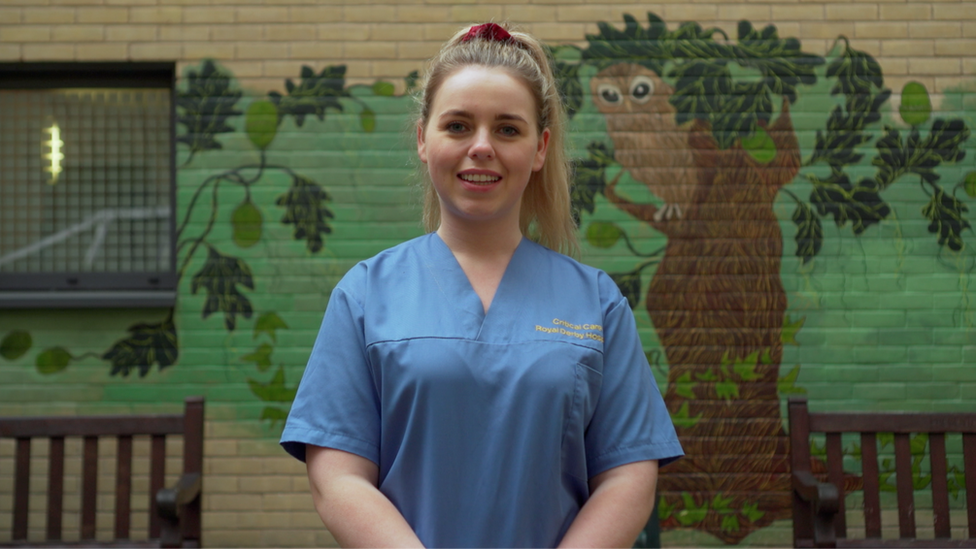
Intensive care nurse Kelly-Ann Gurney said staff are supporting each other
However, despite the unrelenting nature of the pressures, hospitals say they are absorbing the challenges.
Prof Sanjay Agrawal, a consultant in respiratory and ICU medicine at Leicester's Glenfield Hospital, said the short time last year when the intensive care unit was free of Covid patients feels like a "distant memory" now.
But he said health colleagues were still managing to keep their heads above water.
"I think there is a vision people have that, because we say we are under pressure, things are chaotic but that's not the case in ICU," he said.
"We are busy, we are full, we have lots of patients and that means lots of staff, but it's not people running up and down corridors, rushing around, it's calm, measured, quiet.
"We are coping, but we know things are going to get worse and that's always in the back of your mind."
Kirstie Hill, an intensive care nurse at the Leicester Royal Infirmary, said: "During the first wave, there was the adrenaline but that doesn't last forever. You can't run on adrenaline for a year.
"It is different this time. We know what's coming, we know the patterns patients follow, we know what comes next and at the moment we know it's going to get worse.
"I was filling in some forms for a patient the other week and their date of birth was after mine - I'm only 32.
"The patient died. I think people need to hear that to realise it's not just old people dying and suffering.
"We've had people of all ages that we are looking after, but looking after someone who was younger than me was tough. It hits home how serious this is."

Follow BBC East Midlands on Facebook, external, Twitter, external, or Instagram, external. Send your story ideas to eastmidsnews@bbc.co.uk, external.
Related topics
- Published6 January 2021